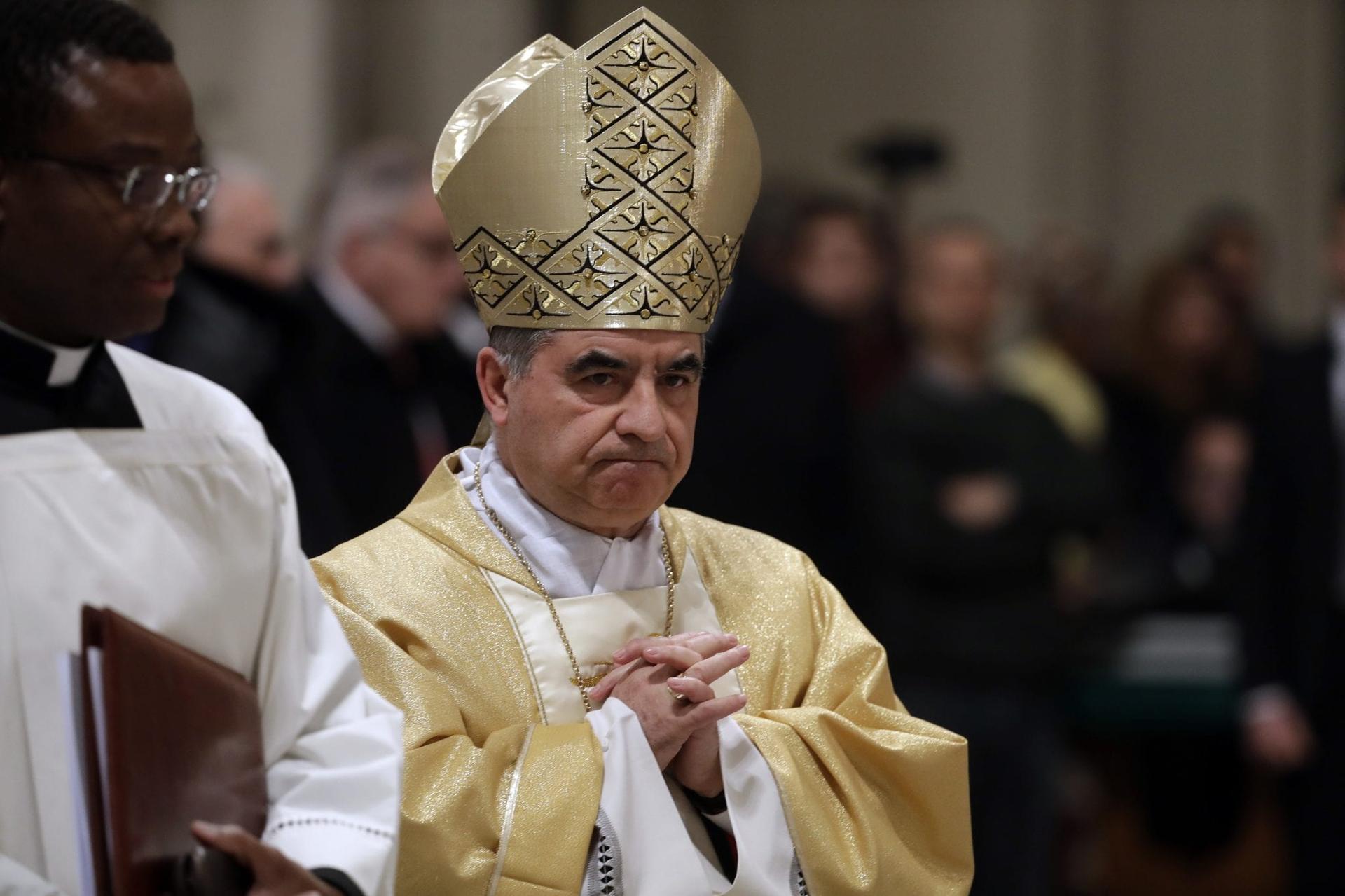ROME – Perhaps Pope Francis’s most powerful aide for the last five years, who will be named a cardinal tomorrow, says it’s still “premature” and “too early” to judge the results of the pontiff’s much-ballyhooed reform of the Vatican.
“It’s still to early to judge the reform,” said Italian Cardinal-designate Angelo Becciu, speaking to reporters on Wednesday.
“Many things have changed, things have been modified in discasteries [a word referring to Vatican departments], but we’re still searching to find the best path,” he said.
The state of Francis’s reform has been questioned lately by observers who note that aside from the consolidation of some pre-existing Vatican departments and the creation of some new ones, there’s been little tangible change in Vatican structures and operations. In the meantime, the Vatican’s traditional centers of power, especially the all-important Secretariat of State, appears to have consolidated its role rather than seeing it diminished or redefined.
Becciu, however, counseled patience.
“It’s still too early, the work hasn’t been finished,” he said. “We’re working towards a [new] apostolic constitution that will bring everything together, giving a unified structure to the reform. So far we’ve had elements but not a unified idea.”
Becciu, 70, has served as the sostituto, or “substitute,” in the Vatican’s Secretariat of State since 2011, having been appointed to the role by Pope emeritus Benedict XVI. During Francis’s papacy, there have been few matters in which Becciu has not been a key player, from a decision to cancel an external audit of Vatican finances to controversial negotiations with China over the appointment of bishops.
Some observers have interpreted Francis’s decision to elevate Becciu as a cardinal as a classic case of promoveatur ut amoveatur, meaning “promoting in order to remove.” According to that view, Francis gradually lost confidence in Becciu, worrying that he may be too closely allied with the Vatican’s old guard, and decided it was time to shake things up.
In his brief remarks on Tuesday, Becciu didn’t address that speculation, referring instead to both popes he worked under as men who “love the Church and desire to serve the Church.”
Becciu turned wistful as he spoke about his seven-year run as, in effect, the Vatican’s “chief of staff,” the one official who doesn’t need an appointment to see the pope on a daily basis.
“They were great years, marked by the awareness that every day might bring surprises, but it was all at the service of the Holy Father,” he said. “It meant helping diffuse his voice and his mission in the whole world.”
Becciu also had words of praise for his fellow Vatican personnel.
“I experienced the beauty of working in the Secretariat of State and also the curia, among people who love the pope,” he said. “It’s a silent work, one often not understood or appreciated. They’re people who pass their lives in service to the Holy Father.”
On his two popes, Benedict and Francis, Becciu said they had “different personalities” but shared a gift for putting their collaborators at ease. In terms of “tough moments” he’s faced, he cited the Vatican leaks scandal, the resignation of Benedict XVI, and criticisms of both the curia and also Francis’s reforms.
In terms of his new role as the prefect of the Congregation for the Causes of Saints, Becciu joked that he expects it will be “more tranquil.”
“The beauty of this dicastery exists in the vocation given to everyone to become saints,” he said. “It’s an interesting challenge.”
As one of three new Italian cardinals in this consistory, Becciu acknowledged he carries a “double citizenship” – Italian and Vatican – but declined to offer any comment on the country’s new government, made up of a fusion of a left-wing populist movement and a right-wing anti-immigrant movement.
“It hasn’t even been 100 days,” he said. “We have to wait to give a judgment.”
Asked if he’s supportive of the sainthood causes of Italian politicians such as Alcide De Gasperri, one of the founders of the Italian republic after World War II, and Aldo Moro, a close friend of Blessed Pope Paul VI who was assassinated after being kidnapped by Red Brigade terrorists, Becciu said “we hope to find the elements of holiness and virtue that would carry them to the honor of the altars.”
Recalling a line from Paul VI that “politics is the highest form of charity,” Becciu said that for De Gasperri and Moro, “politics was a commitment that came from their sense of Christian mission.”
Finally, the former chief of staff said the boss gave him a private heads-up that his nomination as a cardinal was in the works.
“The pope said, ‘I can’t hide it, I see you every day, and I don’t want you to hear the announcement on TV,’ so he confided in me,” Becciu said, calling the eventual public confirmation a “half-surprise.”














